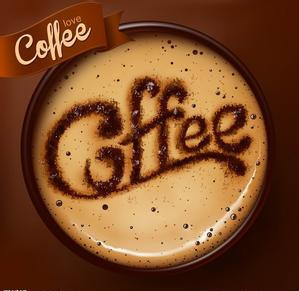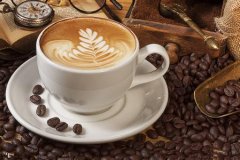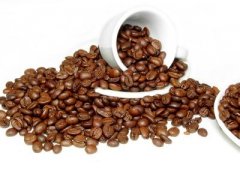Coffee training Culture Napoleon's Coffee feud
On the eve of the French Revolution, a short, fleshy, stocky young officer appeared at the famous Procobo Cafe in Paris. When he checked out, he found that he did not have enough money and was taken off his military cap by the adamant. The little man would not have thought that the guest he teased was none other than the future emperor Napoleon.

At that time, Napoleon often went to the regent cafe in Paris featuring a game of chess. At that time, he didn't have a chance to command a real person, so he became addicted to directing chess pieces. He likes to play chess, but his chess skill is mediocre, and he is often routed by reckless attacks. He complains with chagrin: "this thing is not rigorous enough as a science, and it is too difficult as a game." In the Regent's Cafe, the bronze edge chess table used by Napoleon is still kept.
Napoleon became addicted to coffee, and even during the war, he brought with him a close horse, George Francis, who made coffee for him. Whenever he wanted coffee, he blurted out, "George, coffee." As a result, the saying of "George coffee" spread throughout the court and became synonymous with high-end coffee. Later, Napoleon was exiled to the island of Elba, and Francis opened a "George Cafe" in Paris and launched a unique "Napoleon Coffee" with the help of celebrity.
It turned out that Napoleon did not like the smell of milk very much and felt sick as soon as he smelled it. So he developed a stand-alone habit of drinking coffee: add a few drops of brandy and lemon juice to his coffee. Hearing this anecdote, it dawned on me that it was no wonder that Napoleon praised coffee "not only excites me, but also gives me warmth and extraordinary strength, and does not feel the pain."... " It turns out that the boast is not the magic effect of coffee, but the role of alcohol.
In 1805, Napoleon led his army into Vienna and occupied the summer palace of the Austrian emperor, the Fountain Palace. He not only slept in Queen Terezia's big bed for a year, but also forcibly married the Austrian princess. During the French occupation, the Austrians had nowhere to vent their anger, and some cafe owners asked the running hall to wear Napoleon uniforms to serve the guests, which was a kind of AQ-style resistance.
War kills peace as well as thought and economy. The supply of coffee in Vienna is in short supply, the price is rising again and again, and some people are quick to replace coffee with a grass root that tastes similar to coffee. However, after all, "substitute coffee" cannot replace coffee, and fewer and fewer guests come to the cafe; in addition, out of fear of the French revolution, the emperor strengthened the control and monitoring of political activities in cafes and banned cafes from displaying political books. I can only read official newspapers. The German poet Ernst said that he can always hear free speech and experience the vitality of thought in the cafes of Germany, France and Italy, while in the cafes in Vienna, the guests whisper and look frightened. In early 1810, the government simply issued a ban on the sale of coffee.
"then what should we have for breakfast?" The ban is a headache for all Viennese. Tea? Beer soup? Wine? Vegetable soup? Viennese, who are used to coffee and bread, can not accept this reality. Without coffee, the cafe naturally does not live up to its name, selling wine at noon and hot food in the evening, which has actually become a fast food restaurant. Four years later, the ban was lifted with the abdication of Napoleon, and life in the cafe resumed in Vienna. The sudden arrival of the long-awaited day made the Viennese get out of control. The battle for coffee took place in the streets, and the citizens ignored their temperament and demeanor, with men and women wrestling with each other, some with their heads blown out and some with broken ribs.
The order is out of order and the mood is very good. Anyway, the Austrian lost a princess and won the coffee back. The bitter coffee brought the imperial capital back to life. Viennese like to drink coffee with milk, cream, milkshakes and sugar, a tradition that continues to this day, as if deliberately at odds with Napoleon.
Important Notice :
前街咖啡 FrontStreet Coffee has moved to new addredd:
FrontStreet Coffee Address: 315,Donghua East Road,GuangZhou
Tel:020 38364473
- Prev

Coffee training Culture Coffee and Japanese Culture
As early as the end of the 17th century, the Dutch brought coffee to Asia in the early 18th century, and coffee was soon introduced to Japan. Before and after the Meiji Restoration, Japan advocated total westernization, and the coffee culture with Dutch flavor took root in Japan. During the Taisho period (1879-1926), due to the pervasive atmosphere of freedom and democracy, fresh and luxuriant culture, cafes have been very prosperous. But with the Japanese army,
- Next

Coffee training knowledge and Culture Coffee History
In 1000 there was a doctor in Bukhara, and the philosopher was the first to record the therapeutic effects of coffee. The application of 1470-1500 coffee spread to Mecca and Masterna. 1517 brought coffee to Constantinople after conquering Egypt. The first coffee shop in Costantinople opened in 1554. 1570-80 the order of religious institutions in Costantinople
Related
- How did the Salvadoran coffee industry develop in Central America?
- What exactly does the golden cup extraction of coffee mean?
- The Origin of Coffee flower
- [2023 Starbucks World Earth Day] there are more meaningful things besides free Starbucks coffee!
- What kind of coffee is there in Spain? 9 Flavors of Spanish Coffee
- Aromatic African coffee| Kenya's coffee culture and historical production area
- Liberica Coffee Bean knowledge: the characteristics of Liberian Coffee beans of the three original species of Coffee beans
- The origin and formula of Spanish latte introduces the taste characteristics of Bombon coffee in Valencia, Spain.
- How to adjust the solution of over-extracted coffee
- What is the tasting period of coffee beans? What is the period of coffee and beans? How should coffee wake up and raise beans?

